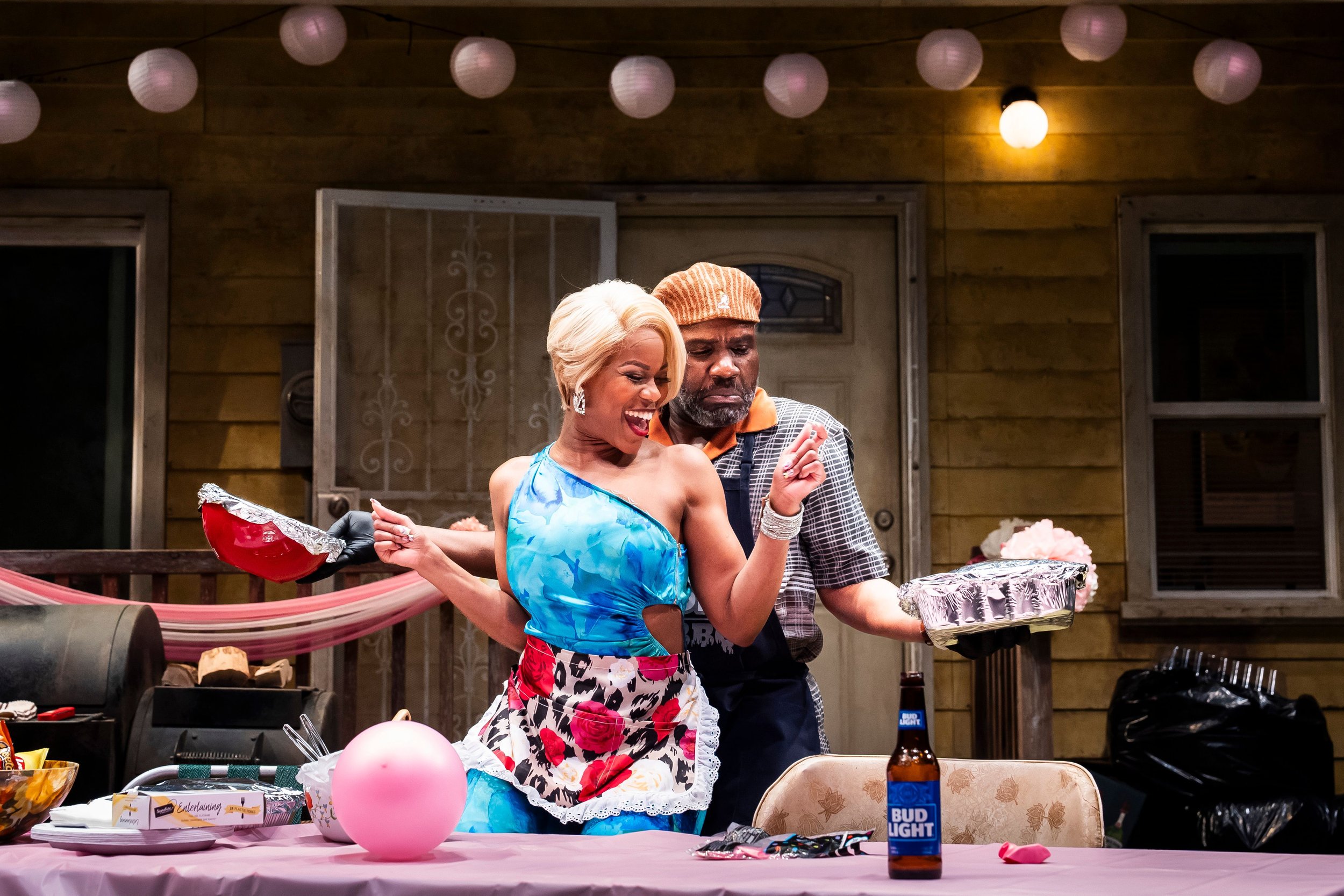Fat Ham
Under the leadership of Tyrone Phillips, the Founding Artistic Director of Definition Theatre, it has become a pharos of artistic expression, illuminating the struggles and stories of these individuals. It has created a space and given a voice to those who have been unseen, bypassed, and often overlooked or marginalized. Phillips, along with his Ensemble and Artistic Advisory Board, is in the process of breaking ground for their new building in Woodlawn; guiding principle (that I describe as the "holy grail") of "Stay Inclusive, Stay Evolving, and Stay Engaged" has illuminated the diverse voices of a remarkable array of expressive playwrights, including Loy A. Webb, Juan José Alfonso, Micah Ariel Watson, and Jackie Sibblies Drury. As Definition Theatre showcased additional playwrights, including Kia Corthron and Tina Fakhrid-Dean, the spotlight will shine on one of American theater's most outstanding playwrights, James Ijames, renowned for his exceptional talent. In collaboration with Theatre Goodman, Phillips started the 2025 season with Ijames's thought-provoking and creatively rich play, Fat Ham, an offshoot of Hamlet. Shakespeare's "Hamlet" has been rewritten numerous times throughout history. Modern editors often blend elements from these different versions to create a performance text based on their understanding of the play. However, James Ijames, the critically acclaimed playwright who began writing Fat Ham in 2017, was inspired by a profound outrage over social, cultural, historical, and artistic injustices and his desire to confront issues that shape his transformative life. Ijames depicted Halmet featured an urban, witty adaptation that followed the main plot of Shakespeare's eulogized play but dramatically transformed it into someone more enthralling from its tragic ending.
Gravitating to one of today's most potent and provocative voices that brought us The Most Spectacularly Lamentable Trial of Miz Martha Washington, White, and Kill Move Paradise, Ijames can be challenging regarding the changing cultural understanding and commitment of Ijames plays. Still, his productions provide an engaging and transformative experience for audiences—which is what you get from Fat Ham. Ijames blends modern-day slang and Shakespearian vernacular to share the story of deception through the protagonist's narrative voice, Juicy. The play unfolds during the celebratory preparation of his mother's marriage to his uncle, Rev. The setting is his backyard, where they have a barbecue feast for the family. But before the festivities begin, Juicy's deceased father, Pap, appears before him as a ghost seeking revenge against his brother Rev, who arranged for him to be killed. Pap tells Juicy that the killer revealed that Rev ordered the hit. Now that he is dead, Rev has married his wife and is seeking control of all his belongings, including his barbecue restaurant. "There's the Rub." Befuddled yet unperturbed by his appearance, Juicy converses with his father but is reluctant to kill his uncle to avenge his name. Pap belittles him, calling him soft and not a strong enough man to regain his honor against his brother for treachery. As he struggles with his identity, life purpose, and communicating his feelings with others, Juicy is conflicted with his father's and uncle's urgings of being more manly and honoring the manhood within the family.








Phillips brings together a fascinating cast featuring Trumane Alston (Juicy), Sheldon D. Brown (Larry), Victor Musoni (Tio), and Ireon Roach (Opal) with the fantastic performance by Anji White as Tedra, the phenomenal talented Ronald L. Conner, who brilliantly performed as Rev and Pap and the incomparable E. Faye Butler, who was outstanding as Rabby. Not to slight the understudies in this production; however, I would have loved to see Joseph Primes, an understudy for Rev/Pap, play opposite of Conner as Rev or Pap. Both actors are incredibly talented and bring a raw intensity to their performances, which would have infused a captivating energy into the rivalry between two brothers, each fiercely vying for the honor of ruling the same castle—a dramatic struggle reminiscent of the classic conflict in Hamlet. The similarities between Shakespeare's Hamlet and Fat Ham can be seen through the two main characters. Hamlet and Juicy feature despondent characteristics, dressing in black attire to display their mourning of their father's death. Both see an image of the father as a ghost that urges them to seek revenge, and both characters speak directly to the audience.
Just like Hamlet, it can be somewhat confusing to follow the obscurities and complex characters and understand the parallels between Fat Ham and Hamlet, even if you saw them performed together. Still, Ijames' unique parallel is captivatingly entertaining while delivering a powerful message. It would be a tragedy if you missed it. Fat Ham's flamboyant ending can be intrusive to some, especially given the new climate in the United States. However, it delivers a fascinating portrayal from the eyes of Ijames that explores a distinctively different narrative. He mingles into the storyline the camaraderie of Black families, together with their distinctive trauma and behavioral cycles of violence developed from the enslavement of blacks, and celebrating self-love and friendship while searching for one's identity, which shouldn't be unseen, bypassed, overlooked, or marginalized.
⭐⭐⭐
A Co-Production with Theatre Goodman
FAT HAM
By James ljames
Directed by Tyrone Phillips
Playing Now through March 2, 2025
Thanks for visiting Let’s Play. For tickets, click the above logo and for additional reviews, click below.




